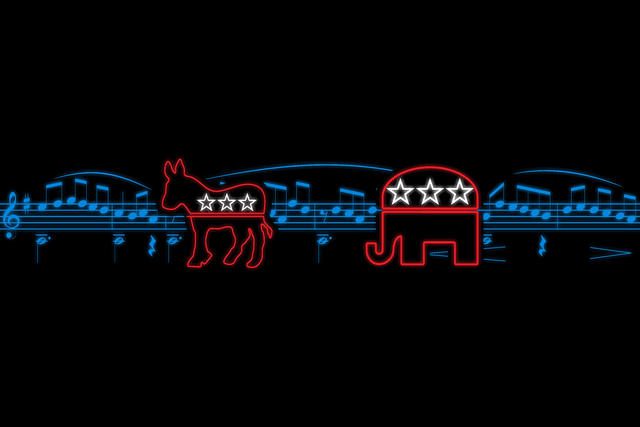Politics and music are not terms that are typically perceived to be synonymous with one another. However, there are various political movements throughout time that have been successfully achieved and communicated to the public through music.
For instance take the Black Power Movement that originated in the 60s. The Black Power Movement consisted of many forms of activism and political speech. But what made the Black Power Movement inclusive of all Black people was the music that came out of the Black Power Movement to inform the masses; songs such as The End of Silence by Elaine Brown, Mississippi Goddamn by Nina Simone, and countless other songs. Music is something that people of all socioeconomic levels can relate to, listen to, and obtain. This was a creative way to inform the masses, no matter the education level or geographical location, on the Black Power Movement’s political agenda.
Moving along the timeline of the United States’ domestic turmoil to more current incidents we come to the 80s and 90s when there was a war on drugs, some scholars would identify this as the “Crack Epidemic”. During this era artist such as Tupac and Nas and groups like N.W.A and Public Enemy all used music to voice their distrust and concerns of various political agendas and systems. Through their music they were able to mobilize political activism within the Black community; their music motivated people to challenge long standing political systems and forced the government to answer racially charged questions.
More recently we have artist like Kendrick Lamar, J. Cole, Solange, and Donald Glover who are producing music to not only question political systems but to celebrate being unapologetically Black within a nation that does not want us to be. Their music puts topics of institutionalized racism, the school to prison pipeline theory, and police brutality into conversation on many levels. By putting these topics into songs and symbolism into music videos it allows different populations of varied education levels, socioeconomic levels, and geographic locations in the same conversation.
The role of music has always been to entertain and to communicate, however it is also our biggest tool during times of revolution. It informs the masses on a scale larger than any newspaper or television broad cast could. So why is music important? It gives a face and contextualizes the issues in the Black community while providing unity to our struggles. By using music as a political tool we are able to mobilize the revolution and keep it accurate; this can be achieved by analyzing how we, as a Black community, can continue to work in political messages.


